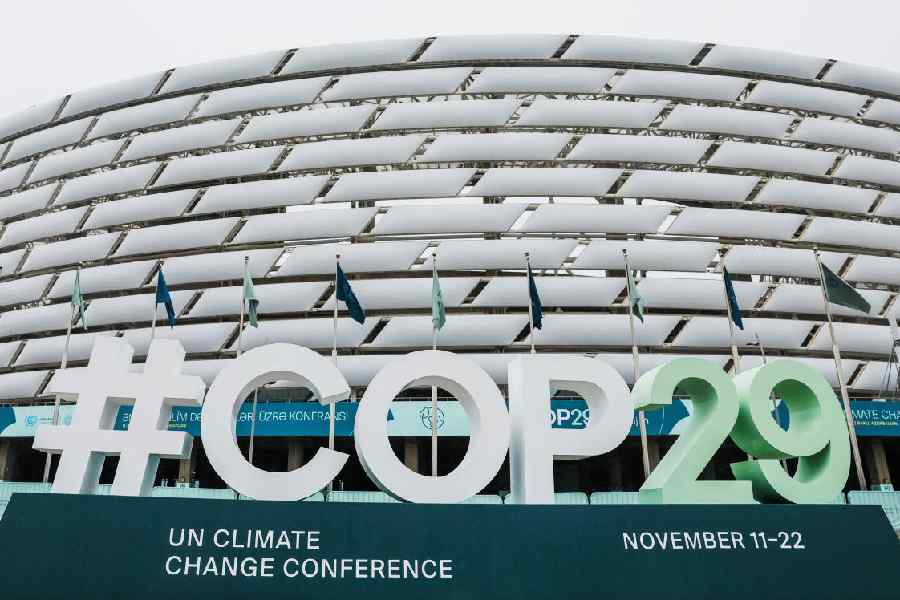In the closing hours of the UN climate conference here, rich countries on Friday proposed increasing climate finance for developing nations from USD 100 billion to USD 250 billion per year by 2035, far short of the trillions needed to address the escalating climate crisis.
A new draft text on a climate finance package for developing nations emerged on Friday afternoon, presenting concrete numbers from developed countries for the first time, hours after countries were left facing an 'X' sitting in a bracket instead of a clear figure after two weeks of intense negotiations.
However, the text says the USD 1.3 trillion per year in climate finance, demanded by all developing countries, will be raised from both public and private sources without placing the responsibility solely on the developed nations.
It specifies that the USD 250 billion per year by 2035 will be mobilised by developed countries from a variety of sources, including public and private, bilateral and multilateral, as well as alternative sources.
More than 190 countries are negotiating climate finance obligations by rich nations for the developing countries as part of the implementation of the Paris Agreement of 2015. The pact binds collective action to cut down on emission of greenhouse gases to restrict the temperature rise to below 1.5 degrees Celsius compared to the pre-industrial times.
Climate policy experts and observers have criticised the proposal as detrimental to developing countries, predicting a strong backlash.
Vaibhav Chaturvedi, a senior fellow at the Delhi-based think tank Council on Energy, Environment and Water (CEEW), said, “The apparent increase in the provision from the developed world to the developing world of USD 250 billion per year by 2035 is essentially the same as the USD 100 billion by 2020 if a 6 per cent annual average inflation is accounted for. There is no grant or low-cost finance component.
“This is a bad deal for the developing world, irrespective of how it is portrayed by the presidency.” He also dismissed the USD 1.3 trillion figure as a “sham.” “The USD 1.3 trillion per year by 2035 for the developing world includes finance from all public and private sources. Investment in renewable energy technologies in developing countries was USD 544 billion in 2022 alone. This figure should naturally exceed USD 1.5 trillion by 2035, factoring in growth in the sector and inflation,” he explained.
Developing nations have repeatedly stressed the need for at least USD 1.3 trillion annually -- 13 times the USD 100 billion pledged in 2009 -- starting from 2025 to meet their escalating climate challenges.
Linda Kalcher, executive director of the European think tank Strategic Perspectives, said, “The USD 250 billion reads like a provocation as long as all sources of finance are counted towards it.” Li Shuo, director of China Climate Hub at the Asia Society Policy Institute, anticipated strong reactions to the USD 250 billion proposal.
“It’s important to hear what countries have to say now,” he noted.
Earlier on Thursday, India said that it will not accept any effort by developed countries to shift the focus away from climate finance for developing countries and place it on emissions reductions in the Global South.
It also said that without adequate support in terms of finance, technology, and capacity building, the fight against climate change would be severely impacted.
In response to the draft text on the new climate finance goal released early Thursday, India’s Environment and Climate Secretary Leena Nandan said the shift in focus at a time when it is crucial to ensure full support for mitigation actions through adequate finance is disappointing.
Except for the headline, this story has not been edited by The Telegraph Online staff and has been published from a syndicated feed.











